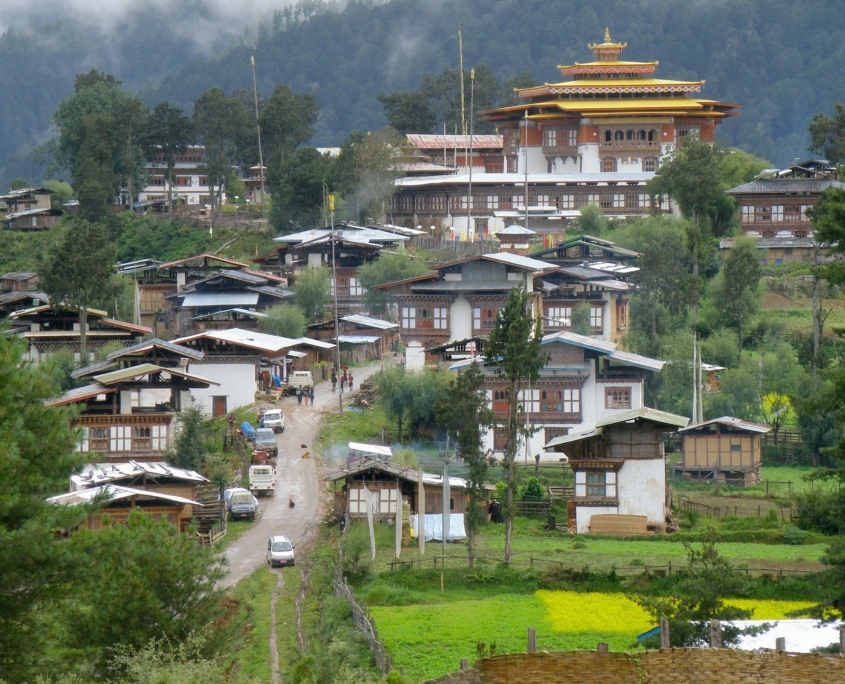The Future of Sustainable Tourism in Bhutan
 Secluded away in Southern Asia, nestled in the Himalayas, is an environmental paradise state, preserved by sustainable tourism policies based on Buddhism to protect Bhutan’s biodiversity. With stunning mountains and rich forests, sustainable tourism policies have been crucial to preserving the natural beauty of Bhutan. Consequently, Bhutan has become a model for balancing development with ecological conservation, attracting tourists who value both adventure and environmental stewardship.
Secluded away in Southern Asia, nestled in the Himalayas, is an environmental paradise state, preserved by sustainable tourism policies based on Buddhism to protect Bhutan’s biodiversity. With stunning mountains and rich forests, sustainable tourism policies have been crucial to preserving the natural beauty of Bhutan. Consequently, Bhutan has become a model for balancing development with ecological conservation, attracting tourists who value both adventure and environmental stewardship.
High Value, Low Impact
Bhutan has adopted a ‘high-value, low-impact’ tourism strategy to minimize the environmental footprint of tourism as much as possible. This strategy includes the Sustainable Development Fee (SDF), which requires tourists to pay a charge of $100 per person to support Bhutan’s development and environmental conservation. The revenue from this fee has led to numerous successes, significantly enhancing infrastructure, services and facilities for both nationals and tourists. Additionally, the funds help finance overseas university education for Bhutan’s brightest students. This approach clearly shows that sustainable development in Bhutan extends beyond the non-economic aspects of society.
Gross National Happiness
Jigme Singye Wangchuk, the 4th King of Bhutan conceptualized the idea of sustainable development independent from economic agendas, insisting that ‘Gross National Happiness (GNH)’ was more important than economic progression. Since 1972, the four pillars of GNH have been viewed with equal importance as economic development; these goals are environmental conservation, preservation and promotion of culture, sustainable socio-economic development and good governance.
Sustainable development in Bhutan has achieved its goals, notably by mandating tour groups for all travelers, as the country bans solo traveling. This policy ensures a minimum profit from every tourist entering Bhutan, fostering sustainable economic development and creating jobs in the tourism sector for Bhutanese nationals. Indeed, tour companies employ cleaning squads to remove litter left by tourists in forests and on mountain trails, thus preserving Bhutan’s pristine environment and providing more opportunities for locals. The tours also immerse travelers in Bhutanese culture and traditions, offering them genuine insights into the daily lives of tribal communities.
Sustainable Energy
Environmental conservation in Bhutan does not only preserve the natural environment but has incredible benefits globally; as one of the three carbon-negative countries globally with 70% of the land covered by forestry, Bhutan acts as a large carbon sink for global emissions. Bhutan also has low emissions as they generate hydroelectric power through their many rivers, instead of using environmentally harmful fossil fuels. This renewable energy is free, making it a very popular and ecological choice. Environmentally friendly energy is a key aspect of sustainable development in Bhutan, with plans to reach zero net greenhouse gases and produce zero waste by 2030 through increasing renewable energy sources such as implementing stronger wind, biogas and solar power infrastructure.
A Refreshing Perspective
Bhutan is governed by the principles of Buddhism, as opposed to business. It is one of the few countries prioritizing the well-being and future of civilians and the environment over economic progression. Bhutan is living and breathing evidence that countries do not have to make the trade-off between economic progression and environmental conservation; this new approach to sustainable development in Bhutan has showcased the environment and economy can co-exist and flourish.
– Abigail Tidball
Photo: Unsplash
